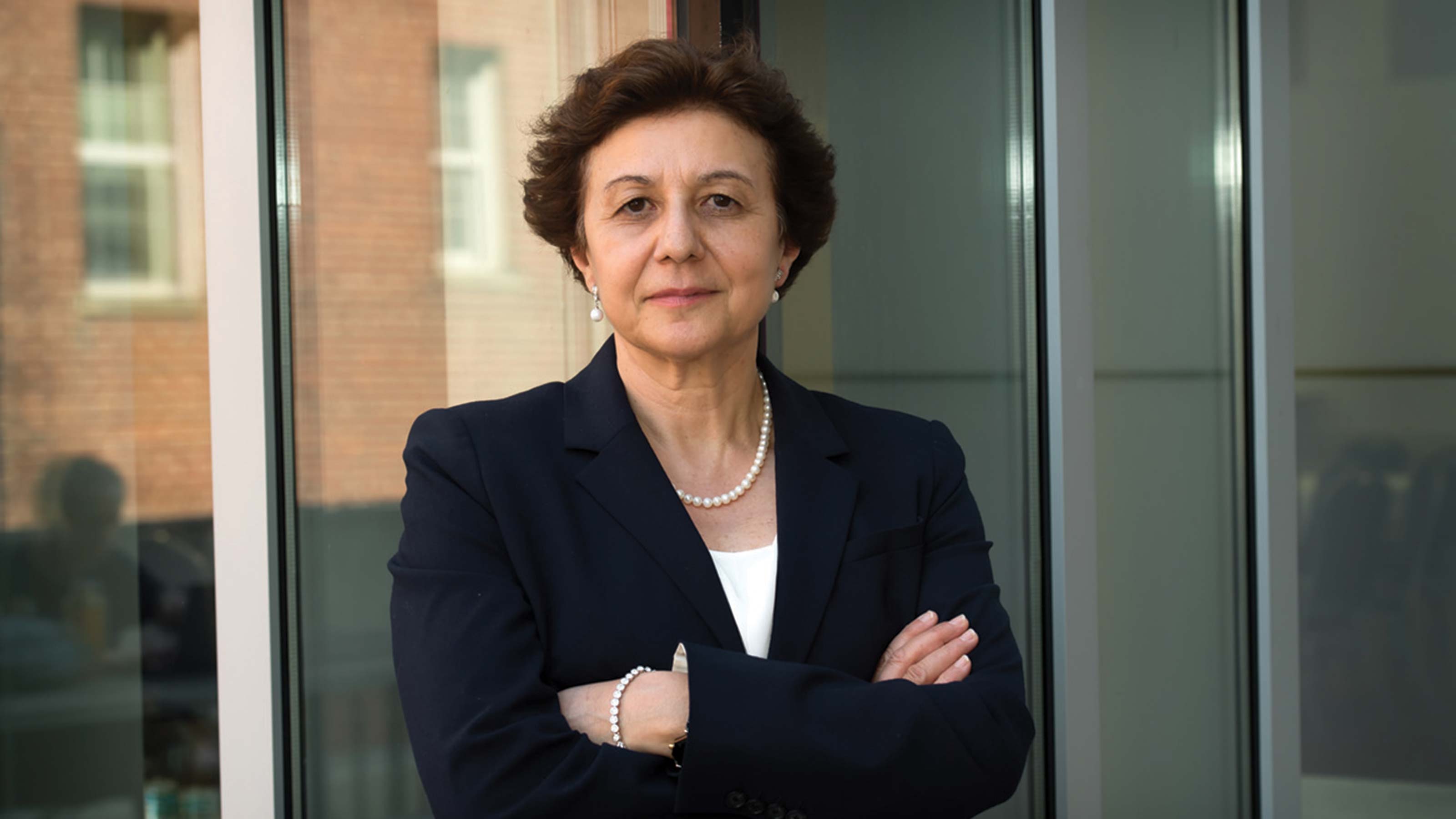Keep Your Options Open as a Stay-at-Home Mom
When taking time off from the workforce, it’s important to preserve your earning power and plan for retirement.


Profit and prosper with the best of Kiplinger's advice on investing, taxes, retirement, personal finance and much more. Delivered daily. Enter your email in the box and click Sign Me Up.
You are now subscribed
Your newsletter sign-up was successful
Want to add more newsletters?

Delivered daily
Kiplinger Today
Profit and prosper with the best of Kiplinger's advice on investing, taxes, retirement, personal finance and much more delivered daily. Smart money moves start here.

Sent five days a week
Kiplinger A Step Ahead
Get practical help to make better financial decisions in your everyday life, from spending to savings on top deals.

Delivered daily
Kiplinger Closing Bell
Get today's biggest financial and investing headlines delivered to your inbox every day the U.S. stock market is open.

Sent twice a week
Kiplinger Adviser Intel
Financial pros across the country share best practices and fresh tactics to preserve and grow your wealth.

Delivered weekly
Kiplinger Tax Tips
Trim your federal and state tax bills with practical tax-planning and tax-cutting strategies.

Sent twice a week
Kiplinger Retirement Tips
Your twice-a-week guide to planning and enjoying a financially secure and richly rewarding retirement

Sent bimonthly.
Kiplinger Adviser Angle
Insights for advisers, wealth managers and other financial professionals.

Sent twice a week
Kiplinger Investing Weekly
Your twice-a-week roundup of promising stocks, funds, companies and industries you should consider, ones you should avoid, and why.

Sent weekly for six weeks
Kiplinger Invest for Retirement
Your step-by-step six-part series on how to invest for retirement, from devising a successful strategy to exactly which investments to choose.
When I first met Variny Yim, she had just had her second child and moved across the country to California. But she was still commuting to Washington, D.C., as part of her job as director of a nonprofit association. She was considering leaving that job, and the cross-country commute, to spend more time with her children, and she asked me for advice on balancing work and family. I completely understood her desire not to work full-time (I had followed the same path myself), but I advised her to “keep one foot in the door.”
Those six little words ended up making a big impact. “I have literally lived your advice,” Variny told me recently. She quit her D.C. job, but over the years she has taken a series of part-time and consulting positions—and even managed to write a novel (The Immigrant Princess). That path, she says, “has enabled me to keep my skill set current while also giving me flexibility to be a full-time mother.”
Taking time off from the workforce is emotionally satisfying and can make economic sense (no child care expenses), but it comes at a cost—not only in current income but also in future earning power and retirement savings. Before you make the move, “understand what’s at stake financially for you and be proactive about planning for it,” says Adrienne Penta, executive director of the Center for Women & Wealth at Brown Brothers Harriman. “It’s important to preserve your earning power to the extent you can.”
From just $107.88 $24.99 for Kiplinger Personal Finance
Become a smarter, better informed investor. Subscribe from just $107.88 $24.99, plus get up to 4 Special Issues

Sign up for Kiplinger’s Free Newsletters
Profit and prosper with the best of expert advice on investing, taxes, retirement, personal finance and more - straight to your e-mail.
Profit and prosper with the best of expert advice - straight to your e-mail.
That doesn’t necessarily mean working part-time. It can also mean staying in touch with your network or hiring a babysitter so you can attend an industry seminar or event. And don’t sell short any activities unrelated to your former career. “Women don’t give themselves enough credit for volunteer activities they’re involved in,” says Penta.
Smart money moves. At-home parents tend to take on the role of family CFO, but that means more than just paying the bills. “Stay-at-home moms need to have access to money they can spend on whatever they want,” says Judy Rubin, a partner with Plaza Advisory Group, in St. Louis. That could be a monthly amount you and your spouse agree on or even your own account.
You and your family are now dependent on the income of one earner, so to protect that income, you need disability and life insurance coverage for your spouse—one rule of thumb is to buy term life insurance equal to seven to 10 times your family income—and insurance on your own life to cover child care and other expenses if anything were to happen to you. And make sure that you (and your children) are the beneficiaries of your spouse’s life insurance and retirement accounts.
One key way to provide for your financial security is to have a spousal IRA. Assuming your spouse is working, he (or she) can contribute up to $6,000 to a spousal IRA in 2019, or $7,000 if you’re 50 or older. Spousal IRAs pack a triple wallop: They help you make up for years out of the workforce, they provide an independent pot of money that belongs to you should anything happen to your spouse (or your marriage), and they give you an opportunity to manage your own retirement assets.
And if, like Variny, you earn money on the side (she subs as a certified spinning instructor), you can save a portion of that for retirement in an IRA or a solo 401(k)—or as seed capital to build your side gig into a real business.
The bottom line, says Variny, is that “you cannot turn a blind eye to finances”—a truth that hit home when she later divorced and became a single parent. Tracking her finances online has been a godsend, and she also works with a financial planner. “As painful as it can sometimes be, I absolutely love visiting my dentist, my auto mechanic and my financial planner,” she says. “It’s all about prevention and long-term maintenance.”
Profit and prosper with the best of Kiplinger's advice on investing, taxes, retirement, personal finance and much more. Delivered daily. Enter your email in the box and click Sign Me Up.

Janet Bodnar is editor-at-large of Kiplinger's Personal Finance, a position she assumed after retiring as editor of the magazine after eight years at the helm. She is a nationally recognized expert on the subjects of women and money, children's and family finances, and financial literacy. She is the author of two books, Money Smart Women and Raising Money Smart Kids. As editor-at-large, she writes two popular columns for Kiplinger, "Money Smart Women" and "Living in Retirement." Bodnar is a graduate of St. Bonaventure University and is a member of its Board of Trustees. She received her master's degree from Columbia University, where she was also a Knight-Bagehot Fellow in Business and Economics Journalism.
-
 5 Vince Lombardi Quotes Retirees Should Live By
5 Vince Lombardi Quotes Retirees Should Live ByThe iconic football coach's philosophy can help retirees win at the game of life.
-
 The $200,000 Olympic 'Pension' is a Retirement Game-Changer for Team USA
The $200,000 Olympic 'Pension' is a Retirement Game-Changer for Team USAThe donation by financier Ross Stevens is meant to be a "retirement program" for Team USA Olympic and Paralympic athletes.
-
 10 Cheapest Places to Live in Colorado
10 Cheapest Places to Live in ColoradoProperty Tax Looking for a cozy cabin near the slopes? These Colorado counties combine reasonable house prices with the state's lowest property tax bills.
-
 My Four Pieces of Advice for Women Anxious About Handling Money
My Four Pieces of Advice for Women Anxious About Handling MoneyTalking about money can help you take control of your finances.
-
 Talking Money With Your Spouse
Talking Money With Your Spousepersonal finance These should be important conversations that will be helpful in the long run.
-
 Readers Share Tips for Raising Money Smart Kids
Readers Share Tips for Raising Money Smart KidsRaising Money-Smart Kids What's the right age for a child to have their own credit card? Opinions vary.
-
 How to Boost Your Financial Savvy
How to Boost Your Financial SavvyWomen & Money Women need to know how financial knowledge can help them take care of their families and themselves.
-
 What Kids Need to Know About Finances
What Kids Need to Know About FinancesWomen & Money In a digital world, it's even more critical to teach children how to handle cold, hard cash.
-
 Estate Planning Got You Down? Start With a Will
Estate Planning Got You Down? Start With a WillFinancial Planning Estate planning may feel overwhelming. Start with a will and the rest will fall into place.
-
 Fresh Voices in Personal Finance
Fresh Voices in Personal FinanceWomen & Money An impressive number of young women have entered the personal finance field via blogs, websites and social media.
-
 A Salute to Money Smart Moms
A Salute to Money Smart Momssavings Today's mothers are in a perfect position to share their experiences in the workforce and as investors.